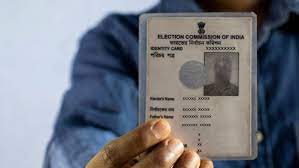Paromita Das
New Delhi, 13th September: Democracy rests on the foundation of free, fair, and transparent elections. In Bharat, with its vast and diverse electorate, the accuracy of electoral rolls is not just a technical requirement—it is a democratic necessity. On Wednesday, the Election Commission of India (ECI) convened its third Conference of Chief Electoral Officers (CEOs) this year at the Bharat International Institute for Democracy and Electoral Management (IIIDEM) in New Delhi.
Inaugurated by Chief Election Commissioner Gyanesh Kumar, and attended by Election Commissioners Dr. Sukhbir Singh Sandhu and Dr. Vivek Joshi, the event served as a platform to assess the nation’s readiness for the upcoming Special Summary Revision (SIR) of electoral rolls. More than a bureaucratic exercise, this revision is an essential safeguard for maintaining the legitimacy and inclusivity of Indian democracy.
Why the Special Summary Revision Matters

The SIR process is a periodic exercise that ensures electoral rolls remain updated, accurate, and inclusive. With millions of Bharatiya reaching voting age each year, and with migration constantly altering demographic realities, the revision is crucial to prevent both exclusion of eligible voters and inclusion of ineligible individuals.
The Bihar CEO’s presentation was a highlight, offering practical strategies and lessons learned from their state’s revision. This exchange of best practices, challenges, and innovations created a roadmap for other States and Union Territories to follow.
Ensuring Accuracy and Accessibility

A major theme at the conference was the digitization and online availability of electoral rolls. CEOs reported progress in mapping current electors against previous rolls to weed out duplication and inconsistencies. With rolls now accessible online through State and UT CEO websites, transparency and accessibility have significantly improved.
The Commission also emphasized the rationalization of polling stations, ensuring no polling station serves more than 1,200 voters. This directive is not merely logistical—it directly impacts voter convenience, reduces congestion, and enhances the efficiency of the polling process.
Balancing Inclusion and Exclusion

One of the thorniest challenges in electoral roll management is balancing inclusivity with accuracy. CEOs proposed practical document-based verification methods designed to make it easier for eligible citizens to register, while simultaneously preventing the enrollment of ineligible individuals.
The ECI reiterated its dual commitment:
- No eligible voter should be left behind.
- No ineligible individual should find their way onto the rolls.
This balance is at the heart of preserving public trust in elections.
Training the Electoral Machinery

Smooth execution of the SIR process requires more than technology—it needs skilled human resources. The conference reviewed the appointment and training of key electoral officials, including:
- District Election Officers (DEOs)
- Electoral Registration Officers (EROs)
- Assistant EROs (AEROs)
- Booth Level Officers (BLOs)
- Booth Level Agents (BLAs)
By ensuring these officials are properly trained and equipped, the ECI is investing in the grassroots implementation of democratic integrity.
Democracy’s Quiet Strength

While headlines often focus on the drama of elections, the quiet administrative backbone that makes voting possible deserves equal recognition. The Special Summary Revision may sound routine, but it embodies a deeper truth about Bharatiya democracy: that every citizen counts, and every name on the roll is a testament to inclusion.
The ECI’s emphasis on technology, transparency, and training reflects a modern electoral vision—one where efficiency does not compromise fairness. Rationalizing polling stations, digitizing rolls, and verifying eligibility might seem procedural, but they represent a commitment to ensuring the voter’s voice is never diluted.
Building Trust Through Transparency
The ECI’s third conference of Chief Electoral Officers was not just about checking progress—it was about reinforcing Bharat’s democratic promise. By streamlining processes, enhancing transparency, and emphasizing inclusivity, the Commission is laying the groundwork for elections that inspire confidence at home and credibility abroad.
As Bharat prepares for future elections, the Special Summary Revision stands as a reminder that democracy is not sustained only by casting votes, but by the painstaking work of ensuring every eligible citizen has the right to do so. In this silent, methodical effort, lies the true strength of the world’s largest democracy.
The post Voter Rolls 2.0: ECI’s Nationwide Push for Clean and Inclusive Lists appeared first on Global Governance News- Asia's First Bilingual News portal for Global News and Updates.



